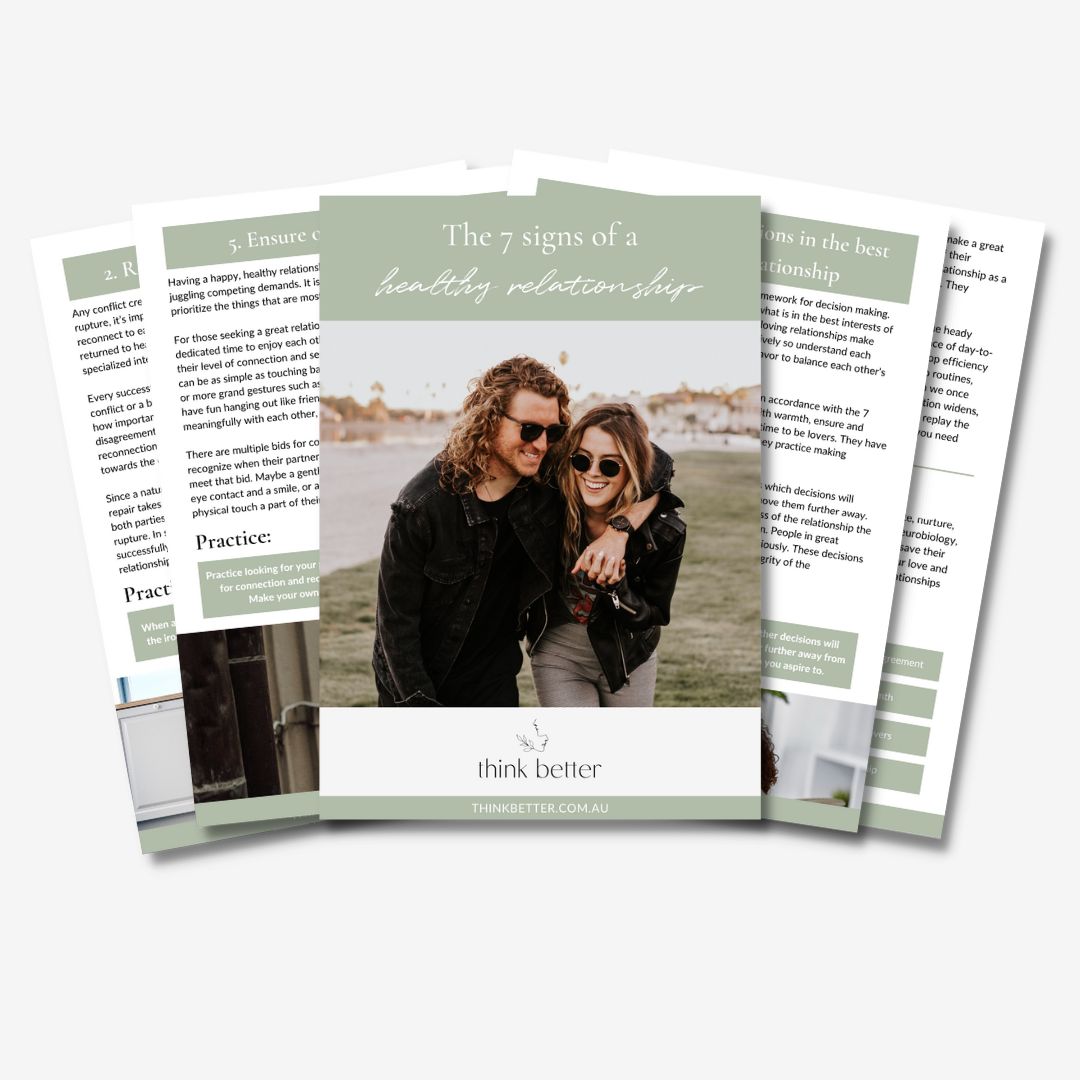“I’m not sure why I am here, I don’t even know if I should be here” Sally sat across from me on the couch and looked down at her hands as she spoke. My face softened further into a compassionate smile. I waited for a moment but that was all she had to say for now. “It’s normal to be nervous and confused coming to therapy for the first time. I remember the first time I went; I thought maybe the counsellor would discover some deep dark secret about me that I didn’t even know about, but it was better than I expected.” Sally looked up and smiled, she took a deep breath and began to speak…
What developed between Sally and I, from those first few sentences, was a process called rapport. It is so much a part of my job, and my life, that I don’t consciously realize I am building rapport anymore as I’m doing it. Yet that is exactly what was happening in the interaction with Sally. It began with me welcoming Sally like I was genuinely happy to see her. (We all love to feel welcome!) As I waited for her to speak, I looked at her with an open and smiling face. My body language was relaxed – there was no rush. I could have said, “Well, why are you here?” to understand further, but chances are Sally would have felt judged. Then she may have found it more difficult to connect and open up to me. Instead, I chose to normalize her experience and humanize myself so that there was a sense of shared commonality between us.
Rapport building superpowers
In just that small interaction there were 6 key rapport building skills – a welcoming stance, open facial expressions, relaxed body language, active listening (including clarification of feelings), empathy, and shared commonality. I have had the good fortune to teach such rapport building skills to trainee counsellors, corporate and private clients for over 10 years. Rapport sits within relationship building and communication skills, which are my favourite topics as I get deep satisfaction from watching people transform their ability to connect with each other.
Rapport is a crucial relationship building skill as it develops a feeling of connection and understanding between people. That understanding is about so much more than the content or words in conversations. It’s often quoted in communication classes that communication is approximately 7% words, and the rest is non-verbal. Therefore, it is so important to be aware of your welcoming stance, facial expressions, and body language. Listening to understand (also known as active listening) is a complex skill requiring practice as it goes beyond understanding words and waiting for your turn to speak. Active listening is also about seeking to clarify the person’s experiences and feelings. When you can understand how a person is feeling and what they are experiencing, they feel seen. The great thing about trying to clarify your understanding, is that you don’t even have to get it right to build rapport.
Rapport is best when practiced regularly
Some people develop rapport quite naturally while others find it more challenging. Regardless of where you are at, rapport is a teachable skill. All counsellors and psychotherapists are first taught rapport building to establish a safe environment built on trust and positive regard. Rapport is so important; it is well known that change during therapeutic work cannot happen without it. It is crucial to positive human interactions.
Seek to connect and engage with curiosity
You can practice building rapport by seeking to connect and engaging with curiosity, rather than judgement. Connection arises because of a shared experience. Connection can be more easily developed through an appreciation of a person and their interests. Finding something you can genuinely compliment someone about is an excellent start. It’s a beautiful ability to develop in your day-to-day life. If the cashier at your coffee shop has just had her nails done, tell her how great they look. As you practice, watch how people come alive when you give a genuine compliment. It’s a win-win. The other person feels good and so do you. Note the key is to be genuine. Interactions will likely fall flat if the person senses you are not being real. Then any previous rapport you may have had, may be compromised.
Acknowledge and validate strengths
Look for strengths in your friends and family and acknowledge them to deepen rapport and connection. It is very difficult not to feel a sense of rapport when you are being acknowledged for a personal strength. Viewing people through a strength focused lens takes practice but it can be a powerful way to positively reinforce that person’s strengths. You are then likely to see the person utilize that strength more often as they feel validated and valued – and want to continue to feel like that. Just like giving genuine compliments, it also feels good to look for the best in the people around you. Remember to tell them, it’s good to think it – but rapport requires you to say it to them.
Seek out commonalities
In your conversations seek out common areas of interest and build upon them. Curiosity arises naturally as an interested and open stance wanting to know more. Consider a time when you last felt deeply curious about something. You probably experienced a natural drive to understand, to explore, and clarify. Curiosity is an engaged state of wondering so don’t be afraid to ask questions of the people close to you. When you display genuine engagement and curiosity, generally people like to talk!
Clarify your understanding
Simply clarifying your understanding also helps the other person to feel engaged with and valued. If I was wrong about how Sally was feeling (nervous and confused) and my story didn’t accurately reflect something about her own experience, she would have clarified by saying, “I don’t necessarily feel like that, but…” That still would have built rapport as I listened to understand further. If you reflect a feeling and the person says, “Exactly!”, you know you have accurately reflected the feeling. But if you haven’t, it’s natural for them to clarify how their experience is different. When building rapport, it is less important to “get it right” than to seek to understand.
Rapport building is the foundation of positive human interactions. It is a set of skills that are teachable and require practice. The good news is even when you get it wrong, the act of seeking to understand can increase connection. You can practice rapport building with friends and family by connecting through complimenting, acknowledging strengths, and seeking commonalities. You can further deepen rapport by seeking to understand – listening with curiosity rather than judgement and clarifying your understanding of not just the words, but the person’s feelings too. As with any new skills, try not to do too much. Practicing all the skills at the same time can lead to overwhelm. Instead, focus on just one or two of the skills and practice regularly to improve your ability to build rapport. Ideally, the heart of rapport is a desire to connect and understand.
To further deepen and strengthen your relationships check out this blog post.




Love this Amy, I have learnt so much of this from you and it sure does make life just that bit better. Probably need some work on it but it’s a wonderful feeling.
Lisa x
Thanks Lisa. I agree, rapport is a great feeling. The good news is once you’ve learnt the skills (which you have) you just need to refresh your intention and practice some more. x